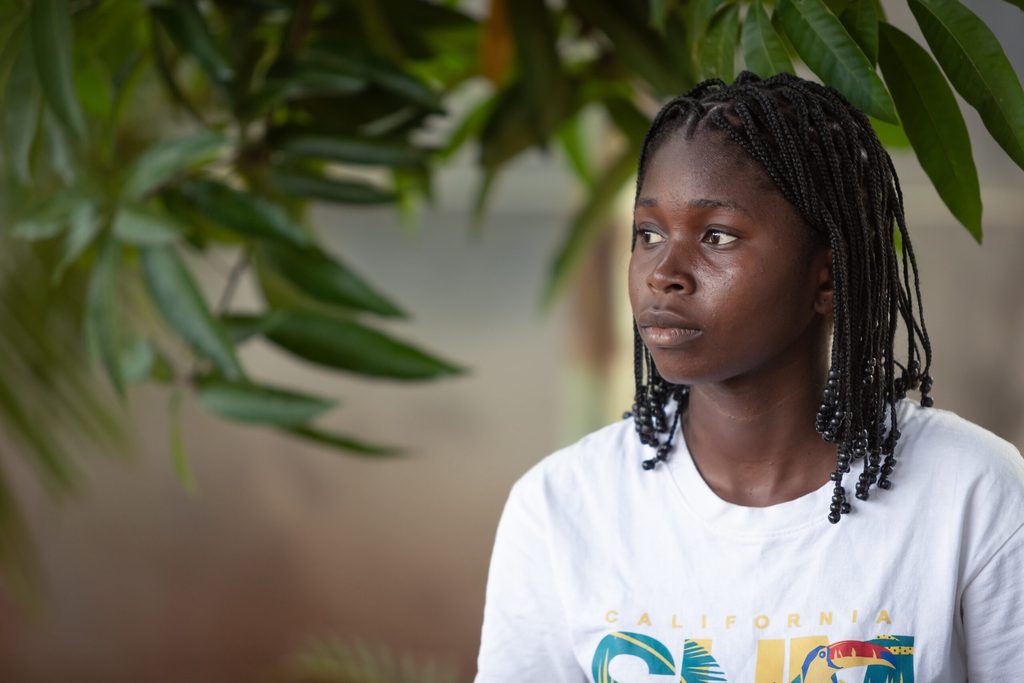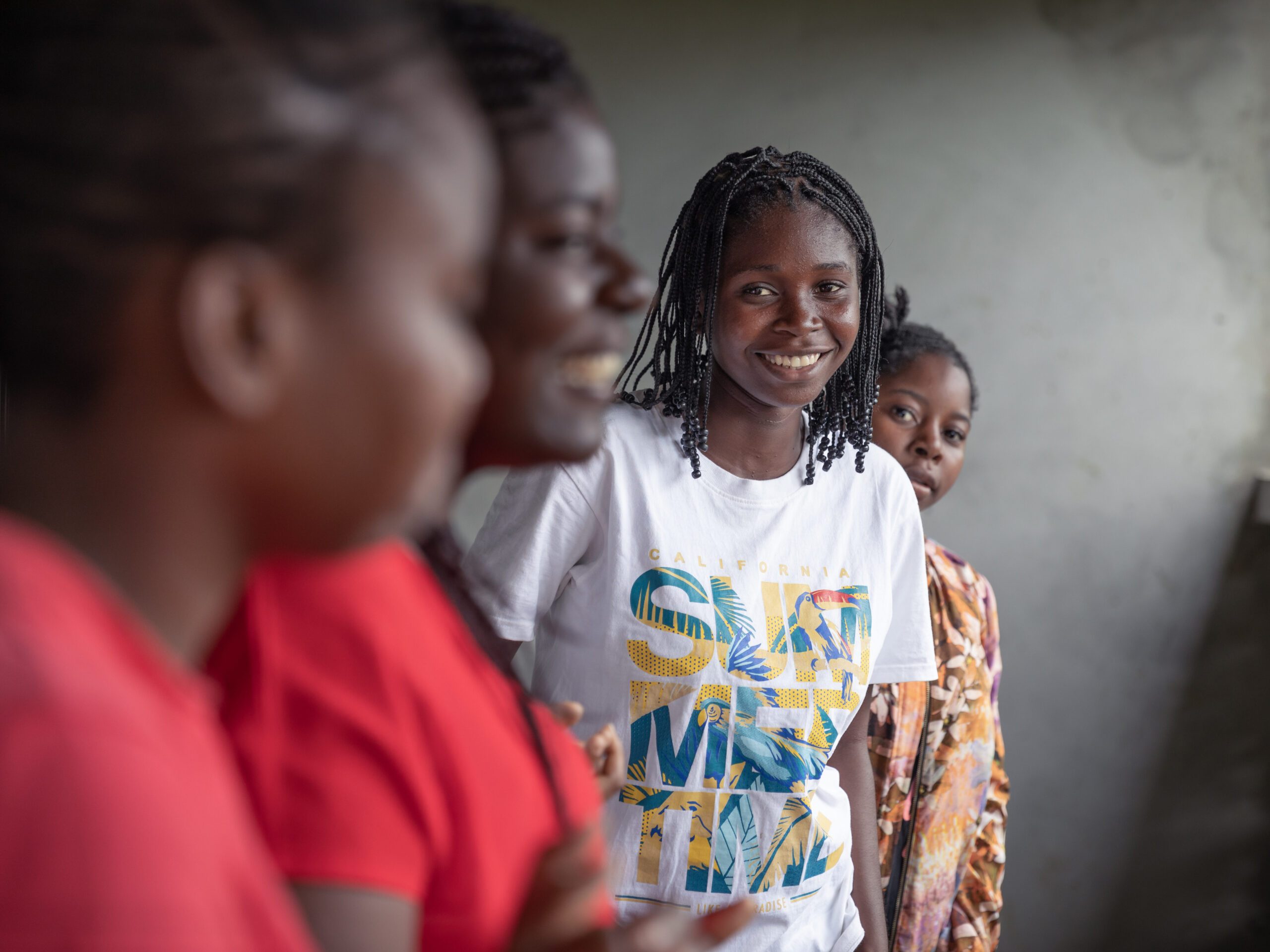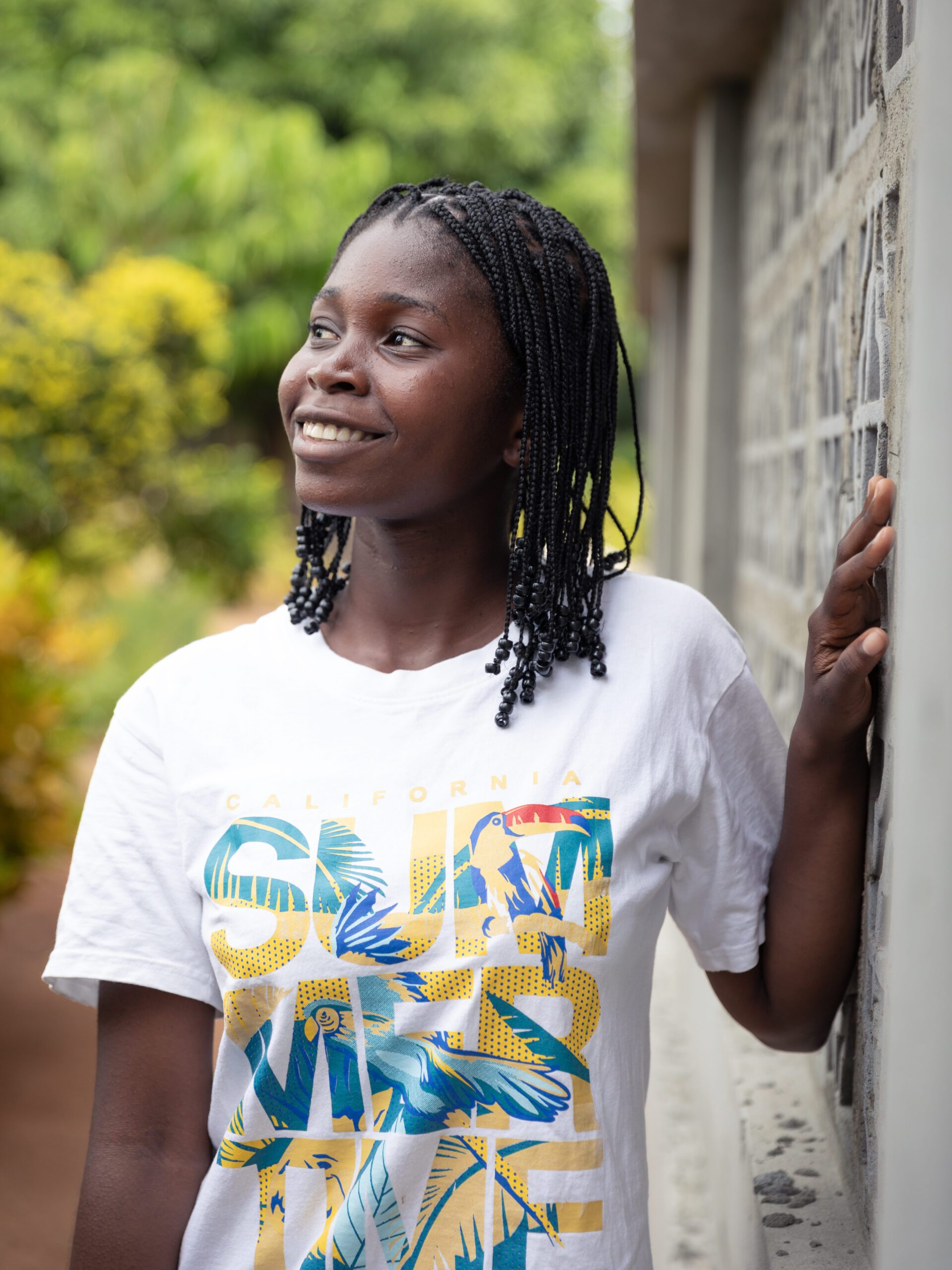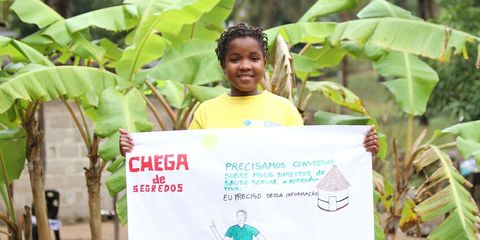The young leader determined to change the world
In Mozambique, 18-year-old Denise has a plan to change the world. Alongside her fellow youth activists, she is championing girls’ rights and calling for an end to child marriage.

“Girls’ rights are constantly being trampled on, but the girls don’t even know that they have rights,” explains Denise. “They aren’t allowed to make decisions about their life. If they accidentally get pregnant, they’re sent away from home into child marriage.”
The problem Denise describes is a common one: Mozambique has one of the highest rates of teenage pregnancy and child marriage in the world. Nearly half (48%) of young women in Mozambique were married before the age of 18, 14% before the age of 15.
“When I became an activist, I started talking about everything I had learnt with all the girls I knew. At first, they didn’t understand me. They thought my activism talk was embarrassing and uncool, but many of my friends eventually joined in with my activities,” says Denise.

The World Economic Forum estimates that it will take five more generations to achieve gender equality. Denise and her friends plan their campaigning activities together and try to think of solutions to the challenges that girls’ experience in their community, including the abuse they themselves often experience for defending their rights.
In Mozambique, people traditionally think that children and young people should not challenge their elders so it takes courage to for these young activists to talk about children’s and young people’s rights with adults and community leaders.
Recently, Denise was able to prevent the marriage of an underage girl by talking with the girl’s parents about the negative effects of child marriages, such as the loss of the girl’s opportunities and the deepening poverty that both she and her family will experience.
“I can defend girls’ rights even if I’m still young myself. I like to talk and I can express myself well, so I can use my gifts for the benefit of others,” says Denise. “I’ve learnt so much about myself and what’s going on around me!”
“I can defend girls’ rights even if I’m still young myself.”
Denise
However she is not always successful in her advocacy attempts, something that she often struggles with. “I see every day how girls’ rights are violated. They are pressured into marrying too early. When a girl gets pregnant too young she is forced to leave school. Then drops out altogether. In my opinion this is a restriction of girls’ dreams.”

Denise is lucky that her parents are fully supportive of their daughter’s education, perhaps because they are both teachers themselves. They are encouraging their daughter, who has recently graduated from high school, to pursue the same career path, but Denise’s true passion is human rights.
“I dream about studying law so that I can be a champion for girls and women in difficult positions,” she shares. “I feel powerless when a talented student leaves school or when a teenage girl ends up as someone’s wife despite our best efforts.”
“I feel that as an activist, it is my duty to do everything I can to ensure the rights of girls are not violated. Every day when I wake up, I say to myself that I can change the world. I ask myself, what can I do for other people today? Perhaps I can have a conversation that will change someone’s life.”
“I ask myself, what can I do for other people today? Perhaps I can have a conversation that will change someone’s life.”
Denise
How Plan International helped
Denise is a member of Champions of Change, a Plan International programme challenging social norms by asking girls and boys to think differently about gender, and encourage the people around them to do the same. The group members often discusses the many harmful social norms in their communities that threaten young people, particularly girls and young women.
To raise awareness about issues that affect girls and women such as gender-based violence, child marriage and discrimination, Plan conducts training sessions with the Champions of Change group members, to teach them about the different types of violence and the laws in place to protect girls and women.
By the Numbers
Plan International has been working to improve children’s lives in Mozambique since 2006. Mozambique has among of the highest rates of child marriage and teenage pregnancy in the world. 53% of girls in Mozambique are married before their 18th birthday and 17% are married before the age of 15.
These issues are related to structural drivers of poverty as well as harmful social norms that prevent girls from realising their rights, including access to quality education and economic opportunities. According to the 2011 DHS, child marriage is more prevalent in rural areas and in the Northern Provinces.
Categories: Campaigns, Protection from violence, Sexual and reproductive health and rights, Youth empowerment


